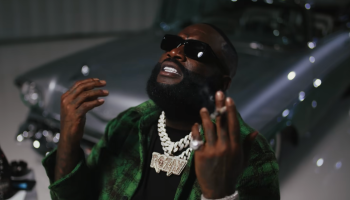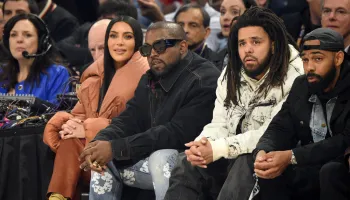Since only the chosen few are privy to selling records these days, it’s constantly stressed that artists need to find other streams of revenue. As in, getting spins on digital music services for royalties.
Yet, Aloe Blacc has learned that such methods aren’t exactly balanced when it comes to shelling out what is properly owed.
Before he was “The Man,” and after he was pleading for spare change on “I Need a Dollar,” Aloe collaborated with Avicii for the monster worldwide smash, “Wake Me Up.” According to the soul singer, the song was just as popular on Pandora as it was in real life, amassing more than 168 million streams in the United States alone. But in a new op-ed with Wired, Aloe admits he only received chump change after the profits were divvied up amongst the other songwriters.
First, unlike most people in creative industries, songwriters seem to have less control over our work than ever before. Knock off a handbag design from a high-end fashion house or use a sports team’s logo in your new t-shirt line, and expect a lawsuit in short order. And good luck copying a big tech company’s patented innovation. You need express permission from the original creators to use or copy their work before you resell it. That’s how they protect the value of their work.
But the world doesn’t work that way for songwriters. By law, we have to let any business use our songs that asks, so long as they agree to pay a rate that, more often than not, was not set in a free market. We don’t have a choice. As such, we have no power to protect the value of the music we create.
The abhorrently low rates songwriters are paid by streaming services—enabled by outdated federal regulations—are yet another indication our work is being devalued in today’s marketplace.
Consider the fact that it takes roughly one million spins on Pandora for a songwriter to earn just $90. Avicii’s release “Wake Me Up!” that I co-wrote and sing, for example, was the most streamed song in Spotify history and the 13th most played song on Pandora since its release in 2013, with more than 168 million streams in the US. And yet, that yielded only $12,359 in Pandora domestic royalties— which were then split among three songwriters and our publishers. In return for co-writing a major hit song, I’ve earned less than $4,000 domestically from the largest digital music service.
If that’s what’s now considered a streaming “success story,” is it any wonder that so many songwriters are now struggling to make ends meet?
Read about the rest of Aloe’s struggle over at Wired. Do you think Rule #4080 is in effect here or nah? Sound off in the comment section below, por favor.
—
Photo: FayesVision/WENN.com















